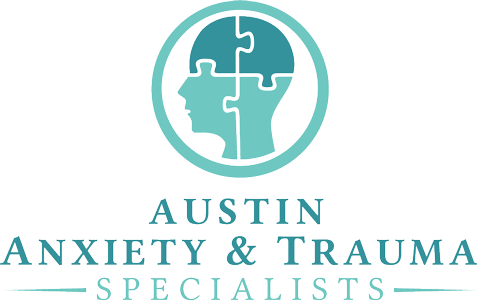Our use of the term “triggered” today has diverged greatly from its true meaning and may even be harmful. An Urban Dictionary user defines the term as you may have heard used colloquially: “triggered is when someone gets offended or gets their feelings hurt, often used in memes to describe…people with strong victimization.” An example it offers depicts an internet troll “triggering” a feminist by telling her to make a sandwich, implying that she’s angry or upset by the sexist comment.
Unfortunately, this term gets thrown around and misused until it has become synonymous with “I’m offended”. So what is it supposed to mean if you’re triggered, and why does it mean something else now?
What being triggered really means
The term “trigger” was first used in studies after World War I to describe the onset of the horrific combat flashbacks veterans with Post-Traumatic Stress Disorder (PTSD) experienced. These flashbacks are symptoms of trauma, or an emotional response to a distressing event. Some well-known examples of trauma are war, sexual assault, or near-death experiences but other highly stressful situations can cause emotional harm as well. Someone with a history of trauma may become “triggered” by anything that reminds them of the traumatic event and experience an increase in or return of symptoms.
A traumatic event might be recalled by triggers such as:
- arguments or topics of conversation
- specific sounds or loud, startling noises
- a location or similar settings
- Certain scents
- Holidays, seasons, or major life changes
- Depictions of the traumatic event in media
- People associated with the experience
Triggers may induce symptoms of:
- Painful flashbacks
- Disassociation
- Panic attacks
- Emotional distress
- A racing heart or shortness of breath
Although triggers are often associated with trauma, they can also trigger symptoms in people with anxiety, substance use disorders, anxiety, and depression.
Read: 10 Signs You’re Living With Unresolved Trauma & How to Evict It
Busting myths and misuse of triggers
“Triggered” has been tarnished unfairly by misuse. In the 2010s, the term gained popularity among teens and young adults in their demand for “trigger warnings” before sensitive content in media to give the power of choice to marginalized groups and people with mental health conditions over viewing potentially distressing content. But those who refused to provide warnings dubbed millennials (and now Gen Z) with the derogatory term “snowflake generation” for appearing fragile and overly sensitive, in effect also stigmatizing the use of “triggered” for people with mental illnesses.
You may have even heard some misinformed users claim to be triggered when faced with difficulty, like needing to study for a difficult test or when stuck in bad traffic without experiencing symptoms of a mental health condition. Misuse propagates the harmful stereotype that people with mental health conditions who actually are triggered are fragile, over-exaggerating, or even faking it. Let’s correct that. We selected three common myths about trauma to fact-check and help inform about what it really means to be triggered:
Myth 1: I’m not supposed to be triggered
Fact: If you have a history of trauma, triggers are likely to occur.
A lot of people believe it’s “wrong” to be triggered. When in fact, expectations about the way things “should” be is a cognitive distortion, or false view of reality. The truth is, if you have experienced trauma, it’s natural that your brain will remind you of it and cause you stress. Rather than try to not be triggered, it’s better to focus on what we can control.
Myth 2: Other people should avoid triggering me
Fact: We are responsible for how we cope with triggers.
If you feel safe opening up to loved ones and people you trust about your triggers, they would likely try to avoid causing you distress in those ways. But they’re not going to be able to filter every trigger. Strangers aren’t going to know you even have trauma, and may not be so willing to avoid triggering you. We are the ones responsible for our triggers and how we cope with them. And we have more control than you may think.
Myth 3: We can cope with triggers by avoiding them
Fact: There are healthier ways to cope and heal.
Triggers aren’t entirely avoidable. Though trigger warnings can help some people feel safe, their effectiveness is still up for debate. Surprise triggers may be more distressing than when we’re prepared, but some studies found that trigger warnings can reinforce avoidance behaviors, which might only exacerbate PTSD in the long run. But whether or not we’re prepared, triggers are still likely to occur. Better to prepare to manage the symptoms than be on constant watch to avoid them. What you can do is learn ways to detach from the trigger, ground in reality, and focus on healthy coping strategies.
Read: 3 Truths About Trauma Stranger Things 4 Gets Right
Ways you CAN cope with triggers
Trauma recovery may feel hopeless, but you can exert control in your healing journey. The first step to healthy coping is recognizing what activates your symptoms and what your response is. When that distressing event comes to mind, pay attention to your mind and body. These exercises can help you feel relief from triggered trauma symptoms:
- Breathing exercises
- Grounding exercises
- Physical exercise
- Journaling out your emotions
- Calling someone in your social support system
- Mindfulness practices
- Meditation or prayer for those who are spiritual or religious
- Tailored strategies learned in therapy
- Professional treatments like Eye Movement Desensitization and Reprocessing (EMDR) therapy
To learn more about how you can build healthy practices into your healing journey, read this blog post about self-care strategies for trauma relief. If you are regularly triggered and struggle to cope, remember that you don’t have to do this alone. Consider seeking professional help to learn the best techniques based on your unique needs.
When seeking a therapist for help with PTSD and trauma, look for one trained in proven treatments like Eye Movement Desensitization and Reprocessing (EMDR), Cognitive Behavioral Therapy (CBT), or Rational Emotive Behavioral Therapy (REBT). Our therapists at Austin Anxiety and Trauma Specialists are trained in these treatments and offer online counseling to all residents of Texas. Contact us today and we’ll connect you with a therapist who can help you learn to do more than cope with symptoms, but heal. It can get better. We can help.






